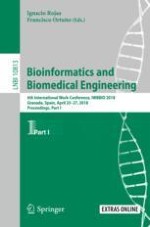2018 | OriginalPaper | Chapter
Estimating the Length Distributions of Genomic Micro-satellites from Next Generation Sequencing Data
Authors : Xuan Feng, Huan Hu, Zhongmeng Zhao, Xuanping Zhang, Jiayin Wang
Published in: Bioinformatics and Biomedical Engineering
Publisher: Springer International Publishing
Activate our intelligent search to find suitable subject content or patents.
Select sections of text to find matching patents with Artificial Intelligence. powered by
Select sections of text to find additional relevant content using AI-assisted search. powered by
